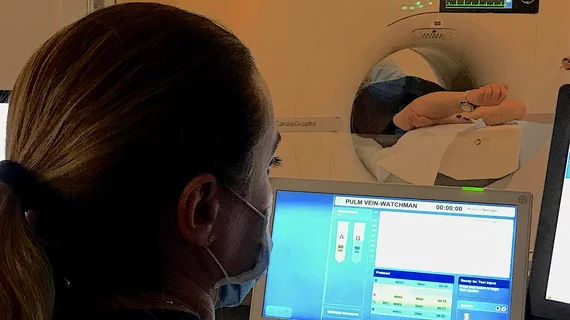Experts developing AI model that learns from calcium-scoring CT scans
Researchers are working to develop an artificial intelligence model capable of learning from patients’ cardiac CT scans to better predict the risk of heart failure and major cardiovascular events.
The group includes experts from Case Western Reserve University, University Hospitals and Houston Methodist. Together, the team hopes to develop a model that will not only estimate patients’ risk of major cardiovascular events but will inform providers on when these events may likely occur as well.
Two grants totaling $4 million from the National Institutes of Health will help to fund the research, which experts believe will eventually lead to more personalized cardiac care.
“It has the potential to set new standards for cardiovascular disease prevention and management, as well as advance the forefront of using AI to analyze images for transformational healthcare,” project leader Shuo Li, a Case Western Reserve professor of biomedical engineering and computer and data sciences, said in a release on the project.
For the research, experts will utilize CT data from both Houston Methodist and University Hospitals work to develop AI models that combine imaging markers—coronary calcium, heart shape, body composition, bone density and visceral fat—from routine cardiac CT scans with patient demographics and clinical histories in order to make precise calculations on patients’ current and future risk.
“Our goal is to develop a noninvasive, accurate and personalized method for predicting cardiovascular disease risk,” Li said. “This innovation will seamlessly integrate into existing clinical workflows, enhancing decision-making while minimizing the need for invasive diagnostic procedures.”
The utilization of calcium-scoring CT has grown exponentially over the past decade. It is estimated that less than 40,000 of these scans were completed in the United States in 2013; by 2020, this figure had more than tripled.
Learn more about the project here.

